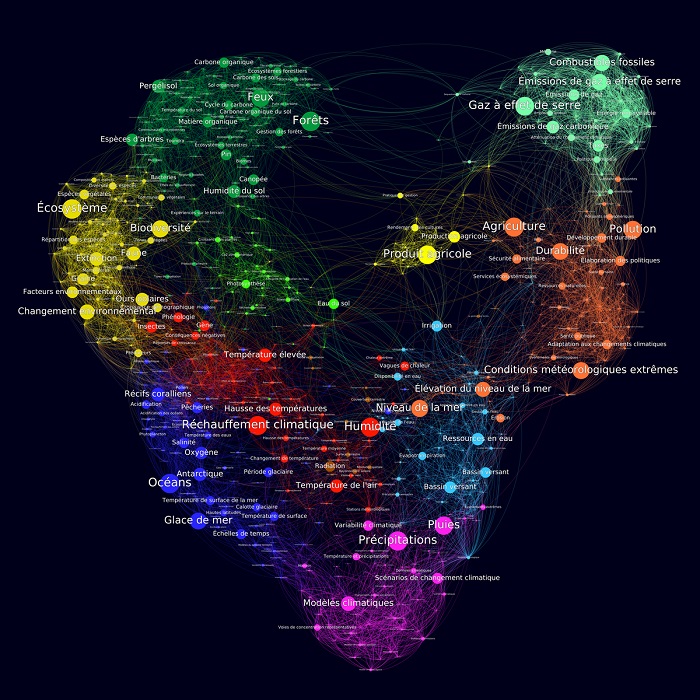
Institute of Mathematics for Planet Earth is founded
|
• Mathematics have a major role to play in responding to pressing environmental issues, including global warming, species extinctions, extreme natural events, and pollution. • The CNRS and its partners have formed a new research consortium that weds multidisciplinary expertise to mathematics in the service of the environment. |
The Institute of Mathematics for Planet Earth (Institut des Mathématiques pour la Planète Terre, IMPT) was officially created on 20 May 2021 by the CNRS; ENS de Lyon; and Clermont Auvergne, Grenoble Alpes, Claude Bernard Lyon 1, and Savoie Mont Blanc Universities. This research consortium will strengthen the collaboration of mathematicians and experts in all dimensions of Earth system science, with the aim of meeting the environmental challenges of today and tomorrow.
The IMPT is to conduct research in three main areas:
- Living Earth—concerned with development of biodiversity, patterns of resilience in nature and society, modelling of adaptation, and ecological crises
- Human Earth—focused on human activity and sustainable development (e.g. waste management, energy consumption and production issues, complex systems and networks, human behaviour, and health)
- Fluid & Solid Earth—covering geophysical phenomena (e.g. seismology, volcanology, tectonics, and coastal flows), oceanography, glaciology, atmospheric science, hydrology, and the study of the earth’s formation as well as the origin of life, while drawing on models whose scales range from the microscopic to the planetary
The development of novel theoretical and numerical mathematics by this transdisciplinary consortium will, through cooperation with scientists in other fields, answer many current environmental questions. Moreover, uniting experts in diverse fields—such as ecology, environmental science, physics, and astronomy—around mathematics with a focus on humans and their interactions with the natural environment is a priority set forth in the latest Objectives and Performance Contract (COP) between the French government and the CNRS.
The IMPT is the brainchild of the MathsInTerre research think tank1
and the Mathématiques Auvergne-Rhône-Alpes research alliance (MARA). It is built on a partnership between institutions based in southeast France: ENS de Lyon, Université Clermont Auvergne, Université Grenoble Alpes, Université Claude Bernard Lyon 1, and Université Savoie Mont Blanc. The Institute, which has a renewable four-year mandate, aims to enlist the support of other public establishments and private partners across France.


- 1Prospective strategy workshops (ateliers de réflexion prospective), organized by the French National Research Agency (ANR) but independent of its calls for projects, convene scientists, government officials, and representatives of industrial firms to define R&D needs in emerging fields still poorly structured or straddling multiple disciplines.


